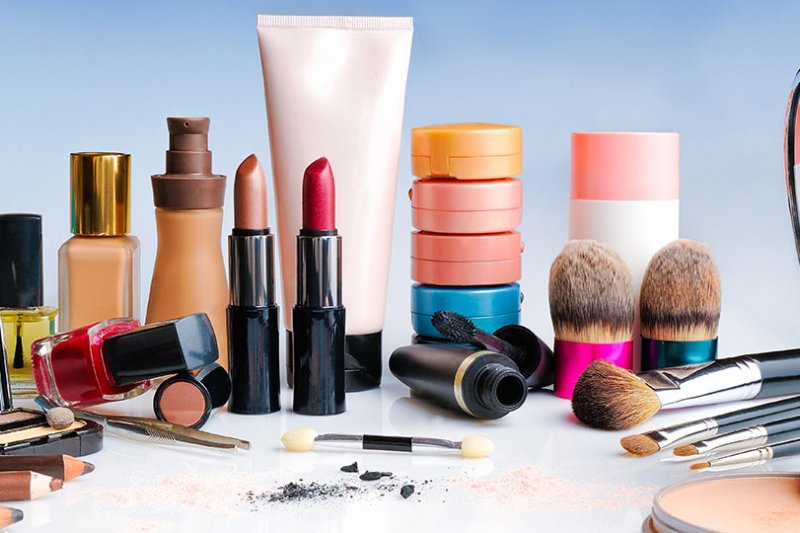Cosmetic Industry Grows despite Prices' Hike
"Made in Albania" cosmetic and personal care industry cells operate separately. Today there are success stories of products formulated here and manufactured abroad, local manufacturing labs that have customers from Dubai, London and USA, quality artisanal products fighting alone for survival.
Basis of this industry is medicinal plants, as Albania exports 95% of the amount cultivated or collected, not benefiting from their added value when subjected to processing.
Market actors in all sectors claim that the potential is great. Someone above the parties must unite all these links, in a chain that works and is properly supported to grow and develop in new dimensions.
Ten years ago, the sisters Mikena and Ada, who had a passion for beauty, created the formula of an oily combination. Today it is the best-selling product of their company and bears the stamp "Made in France".
Due to market conditions, the exclusive "Albanian" formulation could not remain so until the end. Currently, "Ada Herbs", part of the titles of foreign beauty magazines such as "Vogue", "Glamour" and "Health & Wellbeing", includes in its product portfolio complete hair, face and body care lines, which follow same cycle: formulated here but produced abroad.
"The creation of every formula starts from Albania, because we are here. Our products are formulated, created and then manufactured under safety and patent conditions in France, having passed all the necessary standardization stages of the certifications they carry.
The raw material is provided from all over the world, mostly the South of France, where our laboratories are located. The filters necessary for the safety of our products are passed with EU standards and the excellence of French production", - affirm the founders of the company.
According to them, Albania is an indirect part, for the simple reason that trading and production of raw materials for cosmetics is difficult.
"This is one of the reasons that led us to move our production to France, the world center of quality and standard cosmetics.
Of course, this is also a strategic decision of the company, to be in the European and American markets. Launching a 'Made in France' product on the market carries the seriousness and responsibility of one of the biggest superpowers in the world", they underline.
Technological and laboratory limitations make Albania less attractive to develop an industry with potential such as personal care and cosmetics. We say potential, since Albania is one of the 25 leading exporters of medicinal plants in the world, cultivating or collecting over 330 species.
"Albania has a lot of human potential, exceptional climate, diverse and rare vegetation. But it becomes very difficult when we are faced with the pronounced lack of technological, laboratory infrastructure in the country.
Albania, at the moment, does not even offer microbiological tests for cosmetic products, whether in a private or state laboratory, so the creation of cosmetic products in Albania requires multiple services from abroad, marking an extreme increase in costs, which do not justify the standard" , - say Ada and Mikena.
There is growing interest in the production of cosmetics and personal care in the country
Five years ago, biologist Nerta Tushe decided to open a laboratory for the production of cosmetics and personal care in Lushnja. Growing up in Athens, where she studied and set up her first laboratory, she decided to come to Albania, seeing the lack of this link in the country as an advantage.
Of course, the advantage of untrodden ground was also challenging, since at that time there was still no law governing the market, which was based only on regulations, often vague.
Accustomed to another work culture, where producing a product, creating a file and getting an approval required a long time and multiple structures, he decided to continue applying the same rules. Now the number of local and foreign customers is increasing day by day. Its laboratory manufactures products for customers in Dubai, the United States of America, Europe, but also locally.
"Before, we had our activity in Athens and we have moved. At first, the laboratory produced only cosmetic products, but then, seeing that Albania is rich in medicinal plants, we collected and processed medicinal plants, to preserve an Albanian tradition.
In addition to the cosmetic products of our individual line, products of 17 other companies are also produced in our laboratory. We produce for Switzerland, Dubai, we have entered London and we are working for the state of New York", she affirms.
A good part of the raw materials have to be imported from abroad in countries like Greece, Italy or France, as they are not available.
"In Albania we do not have collagen, emulsifiers or hyaluronic acid, or any other necessary substances. The only thing we produce in Albania are essential oils, one of the raw materials for our industry, which we use in the laboratory according to standards and this is our secret.
To extract a liter of essential oil, tons of plants are needed to achieve the good result that the oils have. Albania has an extraordinary potential in this aspect, as it is rich in medicinal plants", she underlines.
But the industry that is working very well in its various links cannot act as one, to unite and exploit the potential it has. In this aspect, it is the government, through its policies, that sees the opportunities and developments of the market and unites all the links, supporting them to increase the value of "Made in Albania" as a whole.
(Source: Monitor)













